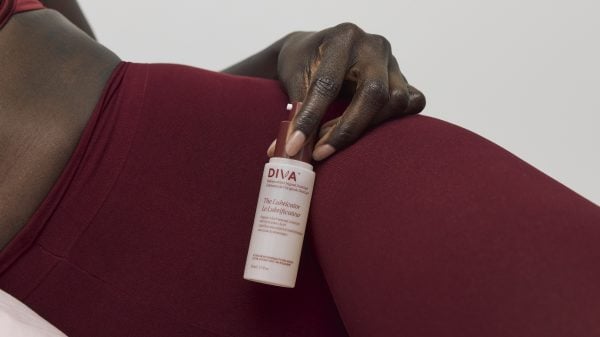On this week’s episode of Let’s Talk About…, Elise sits down with co-host Sarah Joseph to talk about anxiety.
Sarah is a certified emotional intelligence coach whose mission is to help you get comfortable with your emotions and master them to live a more purposeful life. She understands how our lack of emotional management can impact the longevity of our relationships and can inspire our emotional healing by plugging into our most powerful tool, the Mind. Her philosophy is that our emotions show up in every aspect of our lives and it’s your right to learn how to manage them effectively to your advantage.
On this week’s episode, Elise and Sarah talk about what is anxiety, understanding your anxiety, and how to control and manage it inside and out.
“You’re here and here’s your anxiety. You guys are separate and you know that it’s a separate entity because it comes with its own characteristics. It helps you to evaluate that this is just a temporary experience not happening because of me, I am not anxiety, but anxiety is happening to me.” Sarah tells Elise on Let’s Talk About.
Check out the show’s full transcript below.
[00:00:00] Elise: Hi everyone, and welcome. This week we’re continuing our series on emotional intelligence, and today we’re talking all about anxiety. We’re joined by our co-host, Sarah Joseph, emotional intelligence coach. Hi Sarah. How are you?
[00:00:14] Sarah: I’m doing good. How are you?
[00:00:15] Elise: I’m good. I’m good.
So I feel like anxiety is like, I’m laughing cuz I feel like I have anxiety now. Not about the topic, just about the day.
[00:00:28] Sarah: I hear you.
[00:00:29] Elise: I feel like it’s something that strikes all of us. I feel like for me anyway, it’s something that. Has come with age. Like I don’t ever remember being an anxious child. Um, and so I’m, I’m personally hoping when we leave this conversation, that I’ll have a better understanding of anxiety and maybe some ways to manage anxiety.
So compared to today, just on a personal Sure.
[00:00:55] Sarah: And I hear what you mean by, you know, anxiety can definitely take a, a skyrocket with age, right? Different experie. Cause different types of emotions to happen and stir up. So I get it. Just anxiety from the day that that’s so normal. So I’m excited to get into this one today.
I just wanna clarify that I am not a licensed medical professional therapist or psychologist psychotherapist who can provide you with the diagnosis of anxiety. But what I can do is provide you with, you know, the knowledge, tools, tips, and resources to help make your anxiety symptoms a little more manageable. Especially the thought process that’s happening, uh, when you are feeling a little anxious. So I highly advise that if you are struggling with anxiety to please consult a licensed medical professional so that they can give you the most accurate diagnosis and give you an action plan that’s completely tailored to what you need.
Um, but you can certainly take the tips from what we discussed today and implement them into your own
[00:01:49] Elise: life. Yeah, cuz I would imagine. You know, there’s, there’s maybe the anxiety I’m talking about like getting on a flight or feeling anxious about a meeting that’s coming up. And then there’s like the debilitating anxiety too, right?
Yeah. You’re like, maybe we, maybe I toss that word around where I shouldn’t necessarily, but I would imagine there’s like anything a spectrum of, of kind of feeling around anxiety. So thank you for that. Um, so I’m gonna ask you the question, but then I. I’ll kind of answer it too, if you will. Yeah. Like what is anxiety?
Because I’ll say what To me, it just, it feels like a little bit, even right now of how I’m like talking faster. I’m like a little feeling a little scattered, like I don’t feel in control. Mm-hmm.
[00:02:37] Sarah: You definitely got the premise there. Yeah.
[00:02:40] Elise: Okay. Because then I also think of. Um, sometimes more in the last few years, like flying.
I have like a specific kind of flight anxiety too, like that, and it all actually comes down to control now that we’re talking about it. So why don’t you give us the actual definition of, of what scientifically it is,
[00:02:59] Sarah: right. So like you said, there’s definitely a spectrum of how we feel anxiety or how it comes up, for example.
So anxiety is an emotion and it’s an emotion. Hardwired into the human body as a survival instinct, right? So meaning that it’s completely necessary and required for our survival. So it’s kind of an emotion that’s characterized like what we just talked about, a little bit of tension. There’s worried thinking, there’s that lack of control, and it comes with those physical changes, and it’s definitely very fear-based, right?
So the reason I say it’s an emotion and it’s required. It’s because I’ve come across so many people, you know, and I’m guilty of this at one point in my life, that ha. That have said, I just wanna get rid of my anxiety. And I’ve said, you know, maybe if I just got my anxiety outta my body, I wouldn’t even, you know, have this issue right now.
Right. Or maybe life would be so much better if I just didn’t have, you know, anxiety to deal with. Right. And. When it comes to anxiety, it’s just not something that can be done because anxiety comes up as a mechanism in our body to protect you, right? To keep you safe from something. It’s that signal in your body reminding you or warning you that there is danger approaching.
There’s danger ahead, right? So, If you do feel anxious from time to time, that’s actually a really good thing. It means that your bodily reactions are working and it means that you’re hypervigilant to sensing danger. You are quick and you’re aware of when there is danger approaching, and that is a really good thing.
So don’t be alarmed when you do feel anxious here and there. Right? And it’s absolutely normal that it’s a moment for you to kind of check in with yourself and kind of have an internal dialogue to understand what’s happening right now. So, What really scares us about anxiety is the fact that most of us aren’t educated at how to control and manage it when it does come up, right?
So what I wanna do with this podcast is to help everyone be able to, you know, control and manage their anxiety from the inside out. And if you could do that, you most likely would be able to, you know, live through an anxious experience. Because you would be in control again, that in control. And then being able to manage it effectively so that you can continue on with your life.
You know, there’s a lot of us that do feel anxious about our particular experience or situation, and then we kind of shut down, right? Or we avoid a lot of things because it makes us anxious. So a lot of us are allowing our anxiety to live our life for us, and we’re not living life. Truly and fully and fully, really experiencing what it feels like to not only one understand our anxiety, but then also continue to live life even in the presence of it.
So today I wanted to clear all of that up. Okay.
[00:05:48] Elise: No, that’s, um, interesting. I think in that, yeah, you’re right. Like the te at least, and this might not be true for anyone, but the type of anxiety that. I experience, and I’m sure some of the rest of us listening experience is one that can be probably controlled with like whether it’s deep breathing, whether, whatever that might be.
And so I’m excited to kind of go through that today. One thing that also struck me, and I don’t know if there’s any correlation here, but we did just have a conversation on intuition and that idea of like if you’re in danger or that fight or flight. Right. And you also mentioned that with anxiety, is there like, I don’t know, like something to think about there.
I guess is there kind of like, if you’re really in tune, it kind of seems like both anxiety and intuition, the way we kind of describe them, can protect you from potentially harmful situations, I guess, is that they have that in common, I guess
[00:06:41] Sarah: 100% and I would say that for almost any emotion. Right? Ok. If you think about why we have our emotions in general, I think that’s kinda the brain teaser for me is.
Why on earth were we created with these beautiful emotions and all to feel all of them if they weren’t to serve a purpose, right? Mm-hmm. I feel like there was no accident, right? There was no accident in the way that we were created biologically. Whether you believe in God, whether you believe in science, right?
Whether you just believe in human nature, whatever it is that you believe in. Every human, every human was created with the ability to feel emotions, right? And if you can feel them, Why can you, right? Like start questioning that and if you can, what if you are feeling them? Why shouldn’t you experience them?
Why shut them off? Right? They’re clearly showing up for a reason. There’s absolutely no mistake when they do come up. Whether that’s intuition, whether that’s anger, anxiety, sadness, fear, happiness, excitement. So questioning why, and then kind of going back and going, Hey, It’s the human experience, right?
You’re here to live through each and every experience and not every experience needs to be a happy experience. Sometimes we can learn through painful experiences as well, or painful emotions as well. So if an interesting topic to talk about. Exactly. I feel like that’s,
[00:07:56] Elise: like, that brings me back to like, um, not psychology philosophy.
Hmm. I like questioning the greater, the greater reason why we’re here. So what are some, what are some situations where anxiety will come up?
[00:08:12] Sarah: Right. Well, if you think, if you go back way back in time, or just a premise for anxiety is not only do we lack the control, but we’re also, you know, in fear or were in a.
Fear-based thinking and a lot of anxiety stems from feeling scared, feeling afraid, right? Your life again is in danger. So if we go way back when to the caveman times, right? Where we lived in tribes, for example, our anxiety was heavily triggered by things like survival. So maybe not having enough food, maybe there was a famine.
Maybe you know, you’re being attacked by a bear or a lion, right? Because you’re living in the juggle or maybe you know, you’ve got banished from your tribe and now you’re anxious about, you know, how you’re gonna survive and fend for yourself without being part of a tribe anymore. So our anxiety was heavily engaged during that time.
But if we go, you know, back. Into time now where we are in a fast forward time. Now, we can notice that our anxiety still comes up in those triggering ways, but they’re just triggered by different scenarios that almost don’t seem life threatening, but for some reason they still trigger our anxiety. Right?
So why. So as I was, you know, kind of brainstorming how anxiety showed up in my own life, it kind of just spiraled into all these different areas of life where anxiety really does come up for all of us almost all of the time. Mm-hmm. So I broke it down into like a few areas. So financially, right? So how much money you make, how much money you have, you know, are you making money?
Can you survive? Right? So, Money is definitely heavily, you know, engaged with anxiety as well. So you can be very, very hyper active in your anxiety. If, you know, maybe you’re struggling with finances, then there are things like social interaction, so meeting new people, going out in public. Right. Does that cause some anxiety for you?
Uh, maybe not being liked by other people? Uh, so something I noticed with social media, you know, triggers a lot of anxiety for a lot of people. You know, the way that you show up. The way that you post something, you know, I feel like back in the day, I’ve spent maybe an hour going through photos of picking the right one and, you know, editing and doing all this stuff to make sure that it was the perfect picture to post.
But in reality, what I was really doing was avoiding my anxiety from coming up. What if someone didn’t like it, right? What if someone commented something about me that I didn’t like? Anxiety, you know, triggered right there. Uh, maybe work or school. Maybe you are going to work to a job that you really don’t like, but is paying the bills right could be causing you a lot of anxiety.
Or maybe you’re in school for a career that you know doesn’t align with who you are, but you feel you need to do it maybe because of your own expectations or your parents’ expectations. It could heavily create a lot of anxiety, um, health concerns. So being really sick or having any type of health concern can cause a lot of anxiety.
Um, and then things like homelessness, losing a loved one, household issues, right. Um, arguments and stuff like that. Even dating these days can cause us, cause us a lot of anxiety. So as we can see, these aren’t life-threatening situations, but our anxiety is definitely making it out to be, our mind is making it out to be, and it’s causing us a lot of stress and a lot of anxiety.
[00:11:25] Elise: Why do you think? Because I could see like, you know, you get a health diagnosis that’s negative and having anxiety around that. But you mentioned a lot of you, you just said a lot of everyday situations. Hmm. Why do you think that we are kind of, it seems like we’re becoming a more anxious society. Like I don’t ever remember my grandparents or even my parents being like, oh, I’m so anxious today.
But all the time in conversations with. Friends, et cetera. Like of my own generation or ex, it comes up like, oh my anxiety’s at like an all-time high right now. Like any, like, I mean I know the world is different, but like arguably some of them, like my grandparents immigrated here. So that would’ve had to be a very anxious experience.
Right? Like, what do you think it is that’s causing us to be more anxious overall?
[00:12:23] Sarah: Right. Here’s the thing. I don’t even think that we’re trying to be more anxious. I think the society has become really aware, okay. Of the fact that and having, holding more space for their emotions and going, this is anxiety, and I think our parents.
Definitely felt everything that we are feeling now, but we’re unable to classify it. One, cause they didn’t have the education to do it at the time. Right. And then two, they were like, there’s no way that this could possibly be a thing. So some hocus pocus, right? Mm-hmm. And I think now the awareness has spiked so much and there’s so much research and there’s so much science.
People are actually acknowledging it for the first time that it’s become part of their language. Right. Yeah, that makes sense. It’s part of their lingo. So you being able to go, Hey, I’m feeling really anxious today, is a self-awareness on your end that you know has been elevated and evolved 10 times more from where your parents were or grand.
Example, like I know if I said to my grandma, for example, I’m feeling anxious, she’d be like, what is that? Yeah. Like, do you not, don’t you ever feel scared? You know, do you ever shake in your boots sometimes when something scary is gonna be kind of happen to you? And she goes, oh yeah, I feel that when I go on a escalator.
And I was like, ah. So they classify it very differently, right? Yeah. But then there are people that go, that doesn’t exist. I don’t believe in mental health. Right? So I guess it depends. What walk of life you’re on and how you go about classifying it. So I know to relate more to my family, I would say, don’t you ever feel scared?
Yes. And then that’s kind of when they register it as, oh, okay. I guess that’s anxiety. Right? And I’m like, sometimes. Anxiety and fear are linked, but there are so many overlapping emotions in there that they cla they can only classify it under certain levels where they can understand and comprehend it.
Right? Which is again, not their fault, right? They didn’t have the education system we do today. So it’s definitely a blessing to be able to say, Hey, I’m feeling really anxious these days.
[00:14:19] Elise: No, that makes more sense. Like more of an a aware, more of an awareness than like they didn’t have anxiety. That totally makes sense.
Yeah. Yeah. And so how do we go about like understanding our anxiety and I, I’d imagine that’s the first step in controlling it. Mm-hmm.
[00:14:35] Sarah: Yeah. So fighting it. Yeah, so I think what I, when I, when I thought about this topic, I was like, how on earth do I go about controlling my anxiety? Because even as an emotional intelligence coach, The whole point is not to stop myself from feeling anxiety.
It’s to help make my anxiety more manageable because it is gonna show up. There are gonna be circumstances that are completely outta my control. And how do I work with them? How do I manage them? So what I typically tend to do is work through my model. And because a lot of the people that are listening in, Are more beginners in terms of dealing with their emotions and increasing their emotional iq,
I’ve decided to only stick to the first part of my model for today’s topic and introduce you to self-awareness. And the reason I say that in. That’s the first part in understanding your anxiety and how to manage your anxiety is becoming self-aware of what it is. The reason we sometimes go into breath work and we do all these different tactics to help us to, you know, regulate our emotion and then it doesn’t work, is because we didn’t understand or get to know what we’re up against.
So we’re still in that period where we’re avoiding and resisting the very thing that’s causing us to feel fear and scared. So what I wanna do is share a few little steps that you can start doing right away that can help you increase your awareness. So when you know about the monster in the closet, you’re not hiding anymore, right?
And you can definitely go into regulated from a place of self-acceptance. So the whole point of becoming more self-aware is to not only notice it and notice where you feel and how you. To go into, become self-aware and accept that anxiety is a normal, natural part of your biological upbringing, and it’s a completely, completely normal response to something that might scare you, even if it’s not causing you, you know, any type of danger.
You know, immediate danger. And that you can go into regulate it from this place of, okay, I’m just feeling a little anxious. And that is completely normal, right? So the first step is to identify the trigger. So what situations in your life, and I can even ask you, what situations in your life trigger anxiety or trigger an emotional reaction of anxiety for you?
[00:16:53] Elise: I mentioned flying, which is like a pretty easy one. Um, I would say also, and I’m trying to think of the right way to say this, but like I get anxious when I have a lot to do and I don’t feel like I have the time to do it. Like when I’m feeling over, maybe that’s overwhelmed, not anxious, but like that I couldn’t feel anxious.
Yeah, 100%. That’s like a very. Yeah. Like when things that are coming up feel like overwhelming, I guess, and there’s too much on my plate. Mm-hmm. Um, those are the two that I can think of right now, that would be the biggest. Yeah. Things, um, Scannings. I’ve, like, when I was sick, I had anxiety about my health.
And I do feel like that comes up a lot. Like when, um, a check ups coming up. Mm-hmm. Or something like an annual checkup. Then there’s, it’s called like scannings, that scanxiety I think scan anxiety. So like sometimes that will be a thing too. Um,
[00:17:48] Sarah: And that makes a lot of sense. I mean, you’re going in to find out if everything’s okay and what if you find out that something’s not okay?
Right. Does that then mean that I’m sick and I’m gonna die and Oh my God. Right. So the anxiety comes up because now your survival is threatened.
[00:18:01] Elise: Yeah. Right. Funny enough though, like when I was sick, I don’t remember having a lot of actual anxiety, which is kinda weird. Mm-hmm. But it’s kind of almost after that.
And I wonder if that’s true of other people that have gone through like different. Situations where it’s almost like, I guess that would be maybe more like a post post-traumatic situation where you’ve gone through that trauma and then after it you kind of realize what happened maybe. Right, right. So, um, but yeah, those would be the ways it comes up for me.
[00:18:32] Sarah: No. And all completely valid. Yeah, no, those are all completely valid.
[00:18:35] Elise: What about for you? How does it come up for you? For
[00:18:37] Sarah: me, um, I think it would definitely be, um, meeting new people. Mm-hmm. Right. So you get a little bit, a little bit anxious, but I’ve been reframing that a little more and it’s been a lot better.
Um, finances definitely was something that used to really, you know, drive my anxiety crazy, and that’s more from my story and my parents’ upbringing. Where that came from. A stress definitely makes us definitely linked to anxiety. So work, stress, uh, relationship stress, just any type of stress definitely gets me feeling anxious.
Um, sleeping outside of my home. So like at someone else’s home, right? Some actually used to get me a little anxious and there was a point where when I was living at my condo before I moved, where I went over to a girlfriend’s house that I always slept at, I had never had an issue. But all of a sudden I started getting anxiety and I couldn’t go to bed and I couldn’t sleep, and it was just such a tossed turn kind of night.
And when I talked to my like therapist about it, we kind of got down to the point that like my condo at the time was my safe space, right? It was this. Space that I created for myself over time. And it was a place that I felt safe and loved and at home and at peace. And stepping outside of that and sleeping somewhere else for the first time after moving out.
It was probably the most scariest thing in my life. And there was really no reason to feel fear, right? But I was anyway. And how did I manage that? So really reassuring myself that I was safe and I was okay and familiarizing myself with where I was and who I was with. And then things that helped me.
Bringing things along with me on my trip that reminded me of home that had the same scent. So, for example, my pillow, making sure you bring your pillow and your pillowcase with you and sleeping on that pillow or having your entire nighttime routine there with you at night. And keep on, you know, using the routine that you had before you had left.
Um, so maybe that’s skincare. Maybe that’s, you know, your shower routine. Maybe that’s what you eat before bed, if you eat before bed, stuff like that. Maintaining my routine whenever I leave the home, if I’m sleeping over somewhere is something I do now and it’s been 10 times more anxiety free than it was before.
Well, and I
[00:20:47] Elise: like just when it comes to that, like how do we. How do we deal with it? I think when you were saying that it brought to light, like when I’m on flights, I’ll get like a roller and do like a, like a calming kind of breath in with the, the scent. And I think, and it’s kind of what you said in terms of like, it’s almost like ritual.
Mm. Right? Mm-hmm. Like what’s the what? What’s the ritual you do to calm yourself? I guess so that, that’s for me one of the, and for you it was like bringing the pillow or bringing your bedtime route, nighttime skincare routine or whatever it might be. Yeah. To that place you’re at. So is that fair to say?
Is it like creating a ritual to bring down your anxiety or a specific, in that specific situation? Like what is your ritual that calms you?
[00:21:30] Sarah: Right. Yeah. It’s kind of like creating your familiarity, bringing the things that are familiar to you with you. Right. And use that when you are feeling a little anxious to ground you again.
Because I remember we said, I remember when we opened, you were like, it kind of feels like we’re all over the place and I’m out of control. So leaning towards things that you can control and reminding your mind and your body, specifically your mind, that it does have control in these specific types of situation.
And it’s actually okay. To give up a little control in these other areas, right? So, It’s funny because at first I was like, how on earth do I gain control over my anxiety when I’m feeling already anxious? Right. And what happens is noticing the awareness part of it. So understanding what my triggers were really helped me because I went, oh, that’s a trigger for me.
Right. Stepping into someone’s home and sleeping over. So maybe for you it’s a memory of a person. Maybe it’s money, maybe it’s a certain conversation, maybe it’s your weight, maybe it’s, you know, uh, an environmental, a place that you go to. Maybe it’s that pile of work on your desk or maybe that exam or that argument or that person, right?
So getting to know what causes you anxiety is kind of the first part, and you can make a list, you know, of all of that. And going in to look at it very curiously with a third party objective perspective so that you can. Explore what’s kind of happening to you and what triggers anxiety within you or triggers that experience.
So the next part, which I’ll ask you, is to shift your focus to your body. So when you are feeling anxious, notice what physical sensations you feel as a result of your trigger. So are you shaking, trembling is your. Face getting red. Are your ears getting red? Are you having a high blood pressure? Or is your heart palpitating?
Does it feel like it’s burning or tingling or is it really heavy? So when you are feeling anxious, maybe off flight, for example, what do you typically feel?
[00:23:22] Elise: My heart beating. Mm-hmm. Um, and like a little like shaky. But definitely my heart. I’m like, so that’s, I’ll kind of like if I put like hand on heart and stomach and like take deep breaths or wrap my, um, wrap a blanket or something around me.
So it feels like a bit of pressure. Mm-hmm. Um, cause this is got a thing actually like anxie, uh, wait, a blanket? Yeah. Don’t bring a way to blanket on a plane, but like a scarf or something like that helps. Yeah. Um, so yeah, that, those are how it manifests, I guess, physically for.
[00:23:56] Sarah: Right. Are there any other sensations?
Do you feel hot at all? Tingling, burning?
[00:24:01] Elise: No. Not really hot. I mean, sometimes if it’s like a, a, a real anxiety attack, I’ll, um, feel short of breath. Mm-hmm. Um, I’ll feel like. I don’t know, like, why does that feel like that? Like something else weird. Whether it’s like my jaw locking or something, or like, I don’t know, not breathing right, or like I, like I’ll, I’ll focus in on like a specific part of my body, I guess that is feeling it extra and be like, why does it feel like that?
And then it kind of spirals more, right?
[00:24:33] Sarah: And it’s, it’s funny because a lot of my clients, when we do walk through this part and they go, so why is it important for me to know what part of my body, um, you know, has that physical sensation? Like, why, why do I need to know that? Like, I just know that I’m feeling anxious.
Yeah, right. So the whole part of tuning into your body is so that you can recognize that you are not, your anxiety, your anxiety is a separate experience happening to you right now. Right. So it kind of, if you just close your eyes. Focus in, you can notice that you know you’re here and here’s your anxiety.
You guys are separate and you know that it’s a separate entity or being, because it comes with its own characteristics. So the burning, the tingling, the shaking, the heaviness, the chest, right? So it helps you to evaluate that this is just a temporary experience not happening because of me, I am not anxiety, but anxiety is happening to me.
So if you can compartmentalize to know that you are separate from your anxiety. It helps you to kind of pull away from it and detach from your anxiety and observe it and like kind of take a magnifying glass and look at it and go, oh, like you’re separate for me. You’re happening right now to me, and I can feel you, but you and me were not the same.
Right? I’m not an anxious person. I’m just feeling anxious, right? I’m just having a bit of anxiety, experiencing a bit of it. The next part of that is to identify your thoughts. So the sentences in your mind that are, and what do they sound like, right? So what is the story in your mind? You can go ahead to write it down or speak it to someone you know, call up a friend, a therapist, a coach, even somebody that you trust to talk about the thoughts that are happening through your mind.
And then lastly, you wanna identify your feelings. So as a result of those thoughts, what do you feel? Because. I feel scared. I feel sad. I feel nervous. I feel anxious, overwhelmed, because when we do feel anxiety, we’re also feeling a whole other slew of other emotions as well. So our emotions come up in layers and they come up all at once and they can all emotionally hijack you at the same time.
Right. So what you wanna do is pull apart each one and label them and notice them so that you kind of have more control over what you’re dealing with instead of dealing with this one big ball of things and calling it anxiety, right? So you can separate them out and notice that there are multiple things happening to me right now.
Maybe I need to take a step back. Maybe I need some air, maybe I need to breathe a little bit. Maybe I need. Get back to thinking rationally again, and maybe I need a day to calm down so that I can get back to this place of level-headed thinking and rationality. Because if I’m. Feeling anxious and I’m feeling angry, sad, nervous, excited, you know, and fearful all at the same time.
I have no access to my thinking brain, right? All of these emotions have just hijacked me. If I take a minute to calm down and you know, breathe and do an exercise and just sit with my thoughts, maybe journal about it, you’ll then be able to. How, um, how much more calm you will be and how much more level-headed and that you can think through the situation and find a solution, um, after the fact.
[00:27:36] Elise: Okay. Interesting. I, I do think for me too, if I’m sometimes having anxiety in a room where there are others to just leave that room is really helpful and. Think, I guess think through what you’re kind of saying and, and, yeah. Interesting. Uhhuh, is there, um, any, any resources I guess, or anyone that you think talks about anxiety really well?
Yeah. Um, whether there are other, you know, They’re a therapist, anything like that or any other learnings that you’ve come across or people we should look at for anxiety? Yeah.
[00:28:11] Sarah: Um, there’s actually an anxiety coach. I believe her name is Anna. I just can’t remember her Instagram handle, but Okay. We can probably tag it somewhere below.
She’s, she’s great for anxiety. Um, there’s also Jay, just, Jay Shetty, Mel Robbins, they all talk about, you know, managing your thoughts and anxiety. And again, Brooke Castillo, she’s great. She has a great podcast too on just life coaching in general. She has great segments on anxiety and have managed the thought process around there too, so you should definitely check them out.
[00:28:40] Elise: Amazing. And where can everyone find you, Sarah?
[00:28:43] Sarah: They can find me at www.sarahjosephcertifiedcoaching.com. You can also find me on Instagram, TikTok, and Twitter. And if you’re looking to, you know, just get started with increasing your emotional intelligence, you can shoot me an email or book a call free 30-minute call with me and we can get you started.
[00:29:01] Elise: Awesome. Well, thank you. I feel like I’m gonna go put some anxiety-reducing rituals into practice. Right. before my next call!.
[00:29:10] Sarah: I can’t wait!
[00:29:12] Elise: Thanks Sarah.
[00:29:13] Sarah: Thanks.











